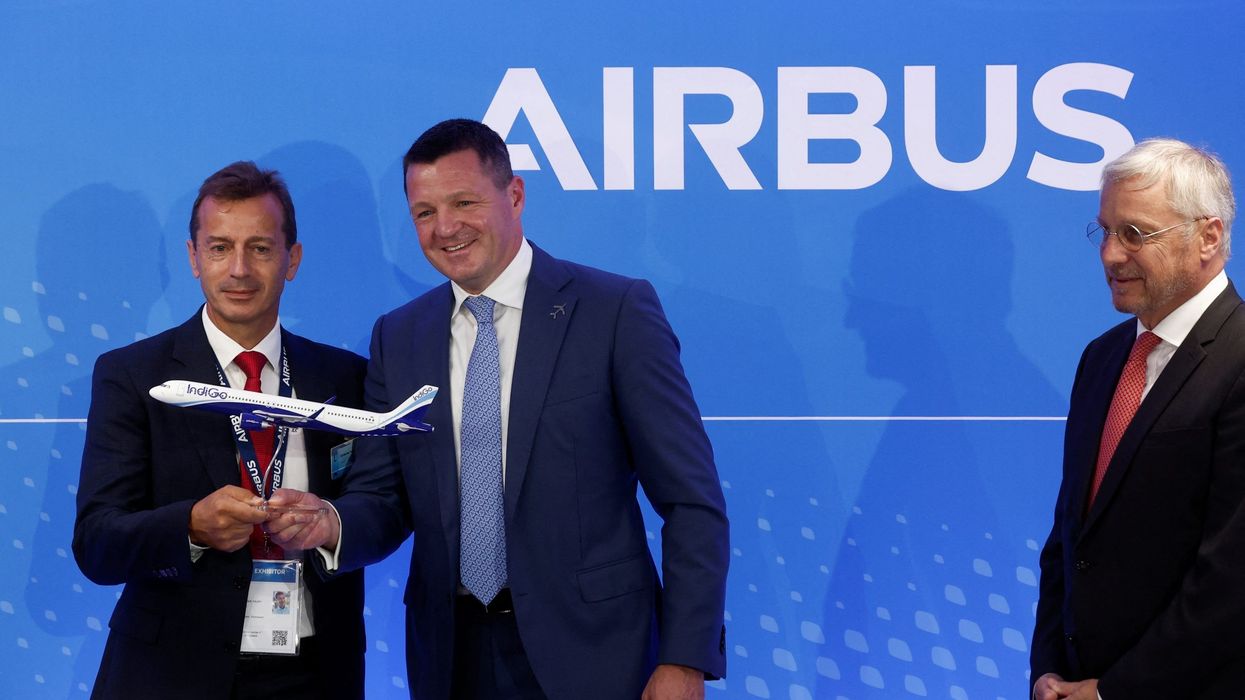AIRBUS announced a record 500-plane deal with Indian airline IndiGo on day one of the Paris Airshow on Monday (19), as strong demand for jets and missiles vied for attention with the industry's supply chain problems.
The multibillion-dollar deal for single-aisle planes - the largest ever by number of aircraft - eclipsed Air India's provisional purchase of 470 Airbus and Boeing jets earlier this year.
IndiGo's deal highlights the growing importance of India, the world's fastest-growing aviation market, serving the largest population, to planemakers.
"This is just the beginning, there's more going forward. With the growth of India (and) the growth of the Indian aviation market ... this is the right time for us to place this order," IndiGo chief executive Pieter Elbers told a news conference.
With a list price of $55 billion - although the closely-held actual sale prices are usually lower - the deal is the largest ever civil aviation order and a "historic" step for both companies, Elbers said.
The aircraft will be delivered between 2030 and 2035.
Efforts by Indian carriers to keep pace with the world's fastest-growing aviation market, serving the largest population, have sent industry records tumbling even though manufacturers are struggling to meet output goals.
Indian carriers now have the second-largest order book, with an over six per cent share of the industry backlog, behind only the United States, according to a June 1 report by Barclays.
But some analysts have expressed concern that airlines could be over-ordering jets in pursuit of the same passengers.
After signing the IndiGo deal, Airbus CEO Guillaume Faury said it was premature to start thinking about narrowbody jet production rates higher than the planned 75 per month.
IndiGo, which accounts for nearly 60 per cent of the Indian domestic market, was widely expected to keep Airbus as its supplier of single-aisle jets to squeeze out further economies of scale.
It continues to hold separate talks with Airbus and Boeing for 25 widebody planes, which could either be Airbus A330neos or Boeing 787 jets, sources have said.
With an order book now at over 1,300 aircraft, the contract also makes IndiGo Airbus' largest customer for the A320 family.
Industry executives say as many as 2,000 jet orders are up for grabs worldwide in a resurgent commercial jet market, on top of those provisionally announced already, as airlines try to fill a void left by sharp falls in activity in the Covid crisis.
Only a portion of these potential fresh deals will be ready in time for this week's air show, which could see a mixture of new and repeat announcements, they said.
The air show is taking place under the shadow of the conflict in Ukraine, with no Russian presence in the chalets and exhibition halls in contrast to the last event four years ago.
(Agencies)
Airbus announces record 500-plane deal with IndiGo
The deal eclipses Air India’s provisional purchase of 470 Airbus and Boeing jets earlier this year




